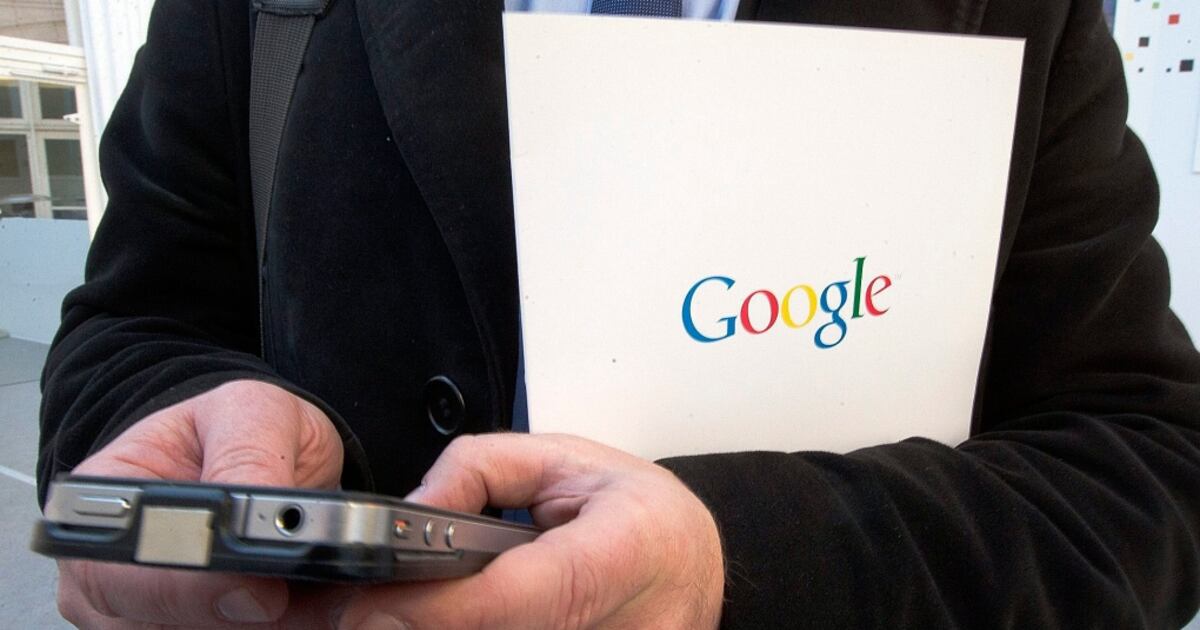Business
Federal Jury Orders Google to Pay $425.7 Million for Privacy Violations

A federal jury has mandated that Google pay $425.7 million in damages for improperly monitoring users’ smartphones over nearly a decade. This verdict, delivered on Wednesday in a San Francisco federal court, stems from a class-action lawsuit involving approximately 98 million smartphones in the United States. The intrusion period is defined as spanning from July 1, 2016 to September 23, 2024. This ruling translates to about $4 per device.
The jury’s decision came after a trial lasting over two weeks. Google consistently denied allegations of tracking online activity of users who believed they had engaged privacy controls. Despite the jury’s conclusion that Google violated California privacy laws, the tech giant’s spokesperson, Jose Castaneda, stated, “This decision misunderstands how our products work, and we will appeal it. Our privacy tools give people control over their data, and when they turn off personalization, we honor that choice.”
The plaintiffs argued that Google collected data from smartphones without user consent to sell targeted advertisements, thereby generating billions in additional revenue. They sought damages exceeding $30 billion, framing the ad sales as illegal profiteering. Although the jury awarded far less than requested, attorney John Yanchunis from the law firm Morgan & Morgan characterized the outcome as a significant victory for privacy rights.
Yanchunis expressed hope that the ruling would signal to the tech industry that individuals would not tolerate unauthorized collection and monetization of their personal information. He stated, “We hope this result sends a message to the tech industry that Americans will not sit idly by as their information is collected and monetized against their will.”
This verdict arrives shortly after Google successfully defended itself against the U.S. Department of Justice’s attempts to dismantle the company in a separate antitrust case. A federal judge determined that while Google’s search engine constitutes an illegal monopoly, the proposed remedies would not include drastic measures, such as breaking up the company. Instead, the court mandated that Google share some of its search data with competitors.
The outcome of both the privacy and antitrust cases illustrates the heightened scrutiny tech giants face regarding their business practices and data usage. As legal challenges continue, the implications for consumer privacy and corporate responsibility remain significant.
-

 Lifestyle2 weeks ago
Lifestyle2 weeks agoChampions Crowned in Local Golf and Baseball Tournaments
-

 Science3 weeks ago
Science3 weeks agoMicrosoft Confirms U.S. Law Overrules Canadian Data Sovereignty
-

 Education2 weeks ago
Education2 weeks agoRed River College Launches New Programs to Address Industry Needs
-

 Technology2 weeks ago
Technology2 weeks agoDragon Ball: Sparking! Zero Launching on Switch and Switch 2 This November
-

 Science3 weeks ago
Science3 weeks agoTech Innovator Amandipp Singh Transforms Hiring for Disabled
-

 Technology3 weeks ago
Technology3 weeks agoWorld of Warcraft Players Buzz Over 19-Quest Bee Challenge
-

 Technology3 weeks ago
Technology3 weeks agoGoogle Pixel 10 Pro Fold Specs Unveiled Ahead of Launch
-

 Lifestyle5 days ago
Lifestyle5 days agoWinnipeg Celebrates Culinary Creativity During Le Burger Week 2025
-

 Science2 weeks ago
Science2 weeks agoChina’s Wukong Spacesuit Sets New Standard for AI in Space
-

 Science3 weeks ago
Science3 weeks agoXi Labs Innovates with New AI Operating System Set for 2025 Launch
-

 Technology3 weeks ago
Technology3 weeks agoNew IDR01 Smart Ring Offers Advanced Sports Tracking for $169
-

 Technology3 weeks ago
Technology3 weeks agoGlobal Launch of Ragnarok M: Classic Set for September 3, 2025
-

 Technology3 weeks ago
Technology3 weeks agoFuture Entertainment Launches DDoD with Gameplay Trailer Showcase
-

 Technology3 weeks ago
Technology3 weeks agoHumanoid Robots Compete in Hilarious Debut Games in Beijing
-

 Science3 weeks ago
Science3 weeks agoNew Precision Approach to Treating Depression Tailors Care to Patients
-

 Technology3 weeks ago
Technology3 weeks agoInnovative 140W GaN Travel Adapter Combines Power and Convenience
-

 Business3 weeks ago
Business3 weeks agoNew Estimates Reveal ChatGPT-5 Energy Use Could Soar
-

 Health3 weeks ago
Health3 weeks agoGiant Boba and Unique Treats Take Center Stage at Ottawa’s Newest Bubble Tea Shop
-

 Science3 weeks ago
Science3 weeks agoNew Study Reveals Surprising Impact of Gratitude on Helping Behaviors
-

 Technology3 weeks ago
Technology3 weeks agoQuoted Tech Launches Back-to-School Discounts on PCs
-

 Technology3 weeks ago
Technology3 weeks agoBorderlands 4 Promises Massive Changes with 30 Billion Guns
-

 Technology3 weeks ago
Technology3 weeks agoDiscover the Relaxing Charm of Tiny Bookshop: A Cozy Gaming Escape
-

 Education2 weeks ago
Education2 weeks agoAlberta Teachers’ Strike: Potential Impacts on Students and Families
-

 Lifestyle2 weeks ago
Lifestyle2 weeks agoVancouver’s Mini Mini Market Showcases Young Creatives










